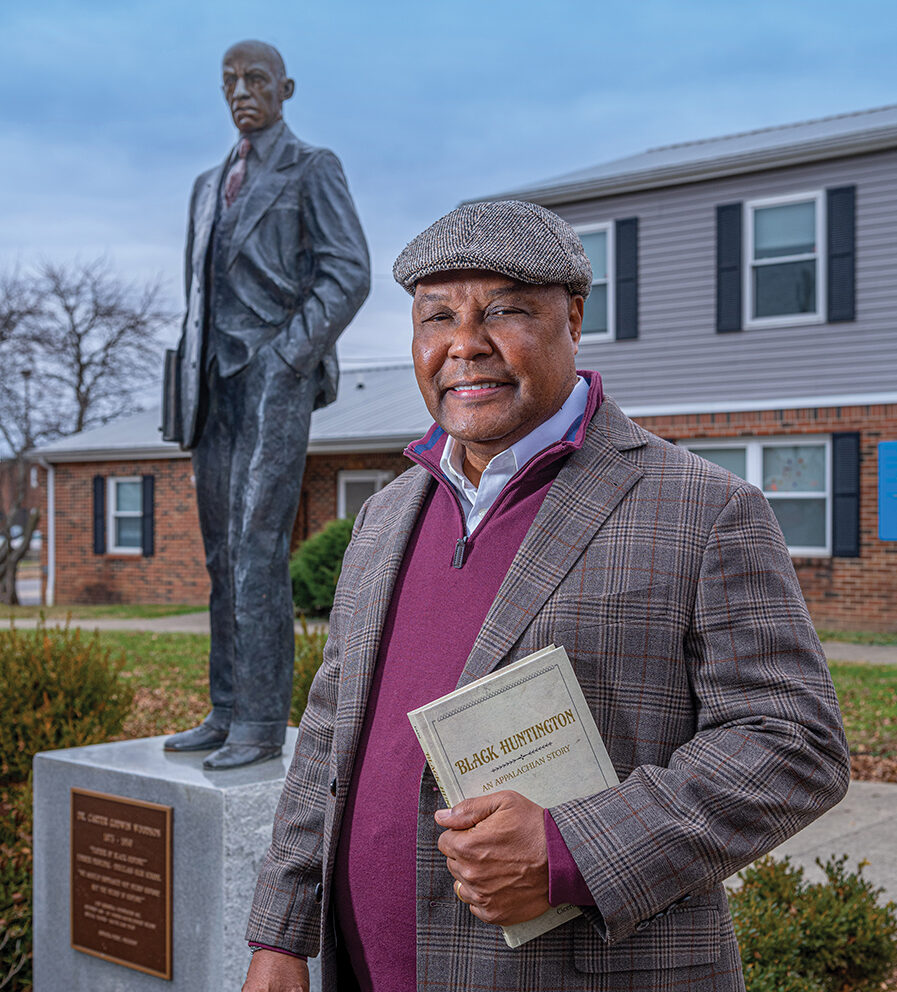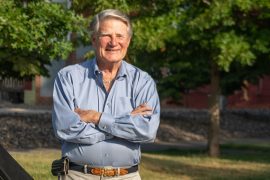Dr. Cicero Fain III, the author of Black Huntington: An Appalachian Story, is responsible for advancing diversity at Marshall University.
By Shelly Ridgeway
HQ 120 | WINTER 2023
Dr. Cicero Fain III is on a mission. After a year in his role as Visiting Diversity Scholar at Marshall University, he was recently appointed to the newly created position of Assistant Provost of Inclusive Excellence & Diversity, Equity and Inclusion Fellow. In many ways, the history scholar and author has come full circle in returning to his Huntington roots.
In addition to his teaching and new administration duties at Marshall, Dr. Fain is also a sought-after speaker, often traversing the state and region delivering presentations and talks about Black Appalachia. His latest book, Black Huntington: An Appalachian Story, took more than six years to complete and details the rich history of Huntington’s Black community. The book was a finalist for the 2019 Appalachian Studies Association’s Weatherford Award and the winner of the 2021 West Virginia Library Association’s Literary Merit Award.
“This is a personal mission. I am an evangelist for Black Huntington,” he said.
As the saying goes, there’s no place like home. Dr. Fain recalls sitting on the front porch of his childhood home and listening to his parents, their friends, neighbors and elders talk about the accomplishments of various Black people in the community. He was inspired by those stories to dig a little deeper into them later in life.
After graduating from Huntington High School, Dr. Fain began his college studies at Marshall University as a political science and journalism major. Storytelling was never far from his aspirations. As a staff writer for the university’s student newspaper, The Parthenon, he was beginning to fulfill his dream of becoming a journalist.
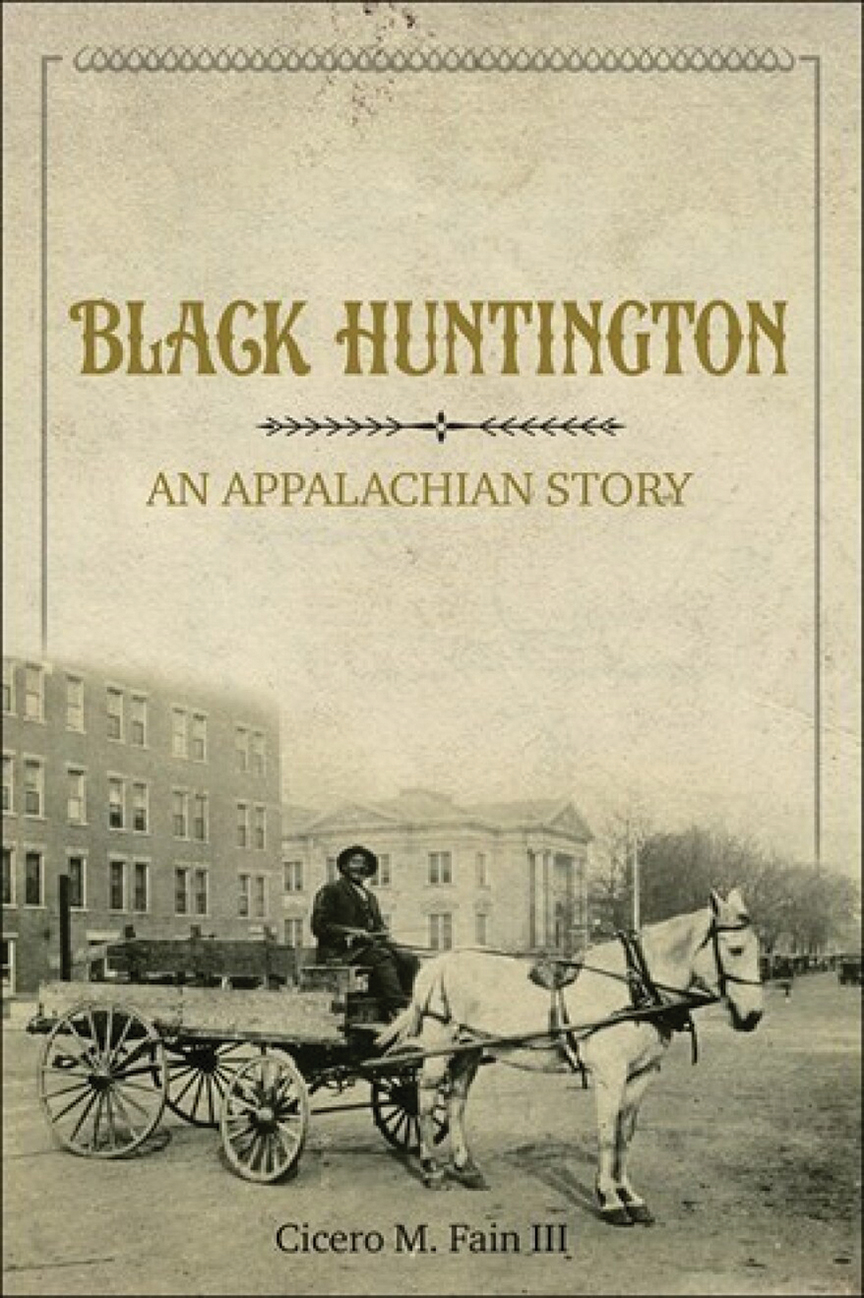
Barely into the start of his junior year, Dr. Fain got a call that changed the trajectory of his life — one that would allow him to become a world traveler and see many of the places he only knew from reading books and watching movies.
Pan American World Airways, commonly known as Pan Am, was looking to hire flight attendants to support its growing international flight routes. At the time, it was the largest international air carrier in the United States. He made the decision to leave Marshall and join the Pan Am team as a flight attendant and purser.
“Every place we went was another adventure for me. It was truly an opportunity of a lifetime for a young Black man from Huntington, West Virginia,” he recalled.
Dr. Fain thrived in seeing cultures outside the mountains of West Virginia and other parts of the United States. Years later, when layoffs hit the airline, Dr. Fain returned to his studies and completed his bachelor’s degree in political science and journalism at the University of Hawaii at Manoa. He also had more opportunities to continue his travels with other airlines.
“I think I visited 35 countries while working for Pan Am, Kabo Air and USAfrica Airways. No place spoke to me the way Africa did,” he said. “Coming from this country and this history in the United States and going to countries like Kenya and Nigeria, and Capetown and Soweto in South Africa — seeing nothing but Black people — will change you.”
Eventually, Dr. Fain returned to the classroom to further his education. He holds a master’s degree in education from George Mason University and earned a second master’s degree in history from The Ohio State University, where he also earned his Ph.D. in history, focusing on African-American history, Modern Africa history and Native American history as subject areas.
After being selected for the prestigious Carter G. Woodson Fellowship through Marshall University in 2000, he joined the university as an instructor and later, after receiving his master’s in history, was hired as an assistant professor in the history department.
Most recently, Dr. Fain spent 10 years at the College of Southern Maryland. While there, he transitioned his dissertation Race, River and the Railroad: Black Huntington 1871-1929 into his most recent book.
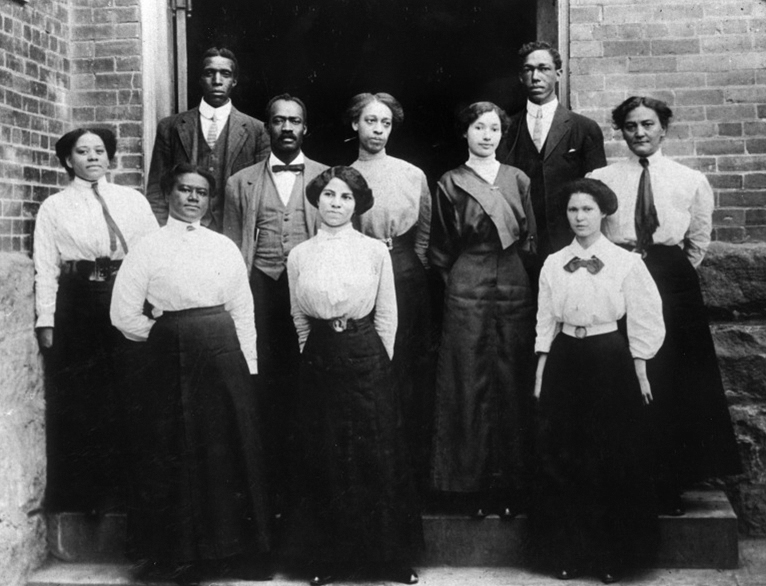
In doing the research for the book, Dr. Fain pointed out, historical factgathering for Black Huntingtonians required some unconventional research methodology. Such techniques as interviewing people and collecting oral testimonies were essential.
“You can’t rely on traditional methods like you would with a white population, because they (white people) have always had multiple ways to validate their existence,” he said.
Keep in mind that Huntington was formed in 1871, six years after the end of the Civil War. Life for the Black community here was filled with uncertainty. Black migrants were leaving plantations in places like central Virginia where they were enslaved and traveling to an unknown destination to start a new life.
“It didn’t come with a written manual or program. Blacks had to figure out how to navigate this new landscape to coexist in a new place. They lifted themselves up by their bootstraps to build a life that included churches and a school to educate Black children,” Dr. Fain said.
These days, Dr. Fain’s focus is on making sure the stories of Black Huntington are told. While working on his Ph.D., he did not encounter any other historians focused on Black Appalachia, aside from Dr. Bill Turner, a renowned expert on the subject whom the Pulitzer Prize-winning Roots author Alex Haley proclaimed as knowing more about Black culture in Appalachia than anyone. The two scholars are close colleagues, and Dr. Fain said he values Dr. Turner as an important mentor.
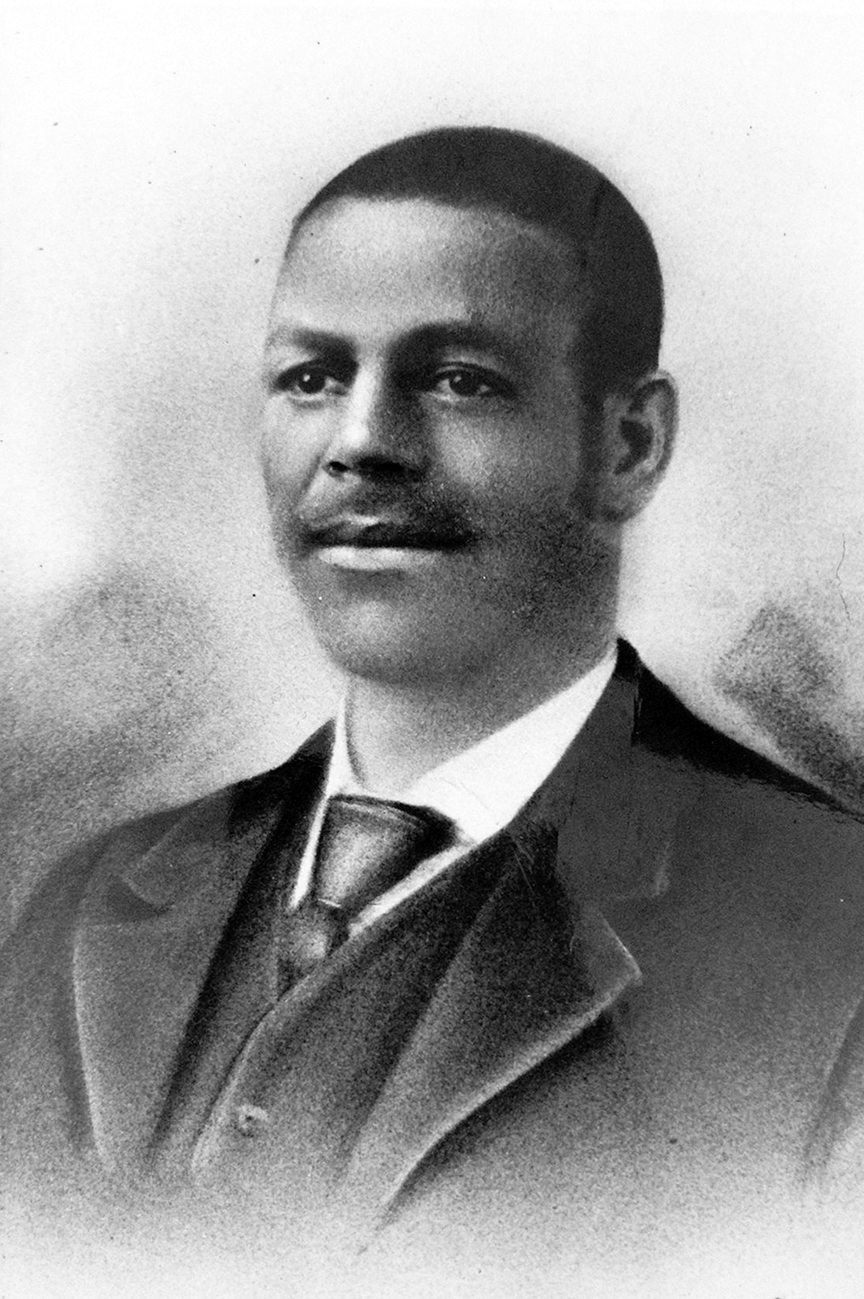
In considering future endeavors, Dr. Fain said he hopes there will one day be a Center for Black Appalachian Heritage in Huntington that serves as a hub for programs and activities, as well as a space that is an epicenter of intellectual, academic, community and scholarly engagement.
Currently, there is no comprehensive center in the state of West Virginia that acknowledges the wide range of contributions of Black people. For those who wonder why the history of Black Huntington matters, Dr. Fain said he believes it is important history for all of Huntington to know.
“It’s a compelling story, and there’s a multitude of stories left to be told,” he said.
Dr. Fain’s book is available in the Marshall University Bookstore and through Amazon.com.

